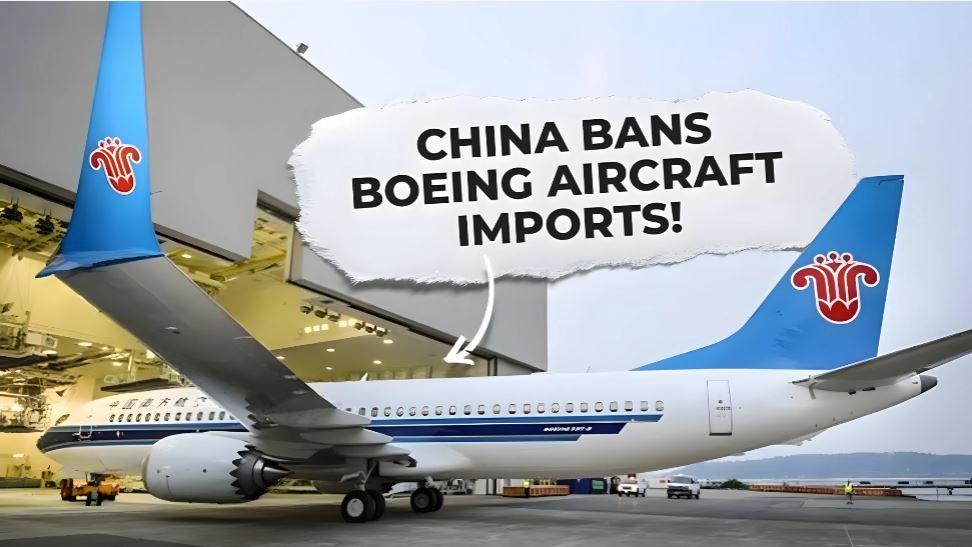Trade War Turbulence: China Suspends Boeing Aircraft Deliveries and U.S. Parts Imports
As tensions between the United States and China escalate, the aviation industry has been swept into the middle of the storm. In a significant move reflecting the deepening trade rift, the Chinese government has instructed its domestic airlines to halt all deliveries of Boeing aircraft. This directive, which surfaced following renewed tariff clashes in April, reportedly extends even further—affecting the import of U.S.-manufactured aircraft components as well.
The decision marks a dramatic development in the ongoing tit-for-tat trade war that has seen both superpowers raise tariffs and impose restrictions on key industries. Aviation, long viewed as a strategic sector for both nations, is now directly caught in the crossfire.
China’s state-owned carriers, including Air China, China Southern Airlines, and China Eastern, are among the biggest customers of Boeing, particularly for its 737 and 787 series. Many of these airlines had pending deliveries scheduled throughout the year as part of their fleet modernization and expansion efforts. A suspension in deliveries not only disrupts airline operations but could also have long-term consequences for route planning, international growth, and even flight availability.
However, the implications extend beyond the immediate airline industry. The Chinese directive reportedly includes a ban on U.S.-made aircraft parts, a move that could severely impact aircraft maintenance, repair, and overhauls. U.S.-made components are widely used across various aircraft models flying in China, including Boeing planes and even Airbus jets, which often contain American parts.
More critically, this decision could hinder the progress of China’s domestic aviation ambitions, particularly the development of the Comac C919. Touted as China’s answer to the Boeing 737 and Airbus A320, the C919 has been under development for years and is seen as a symbol of China’s desire to compete in the global commercial aircraft market. Yet the aircraft still relies heavily on foreign technology, especially from U.S. firms. Components such as engines, avionics, and flight control systems are sourced from American companies—meaning this import halt could delay certification, production, and deliveries of the C919.
From the U.S. side, Boeing stands to lose significantly. China has historically represented one of its largest and most lucrative markets, accounting for hundreds of aircraft orders and future demand projections. As Boeing recovers from the 737 MAX crisis and grapples with production delays and regulatory hurdles, the loss of access to China’s aviation sector deals another major blow to the American aerospace giant.
Meanwhile, Airbus may find itself in a favorable position, as China looks for alternatives. The European manufacturer has been expanding its presence in China, including final assembly lines within the country. With Boeing deliveries on pause, Airbus could gain a larger share of the market—especially if China continues to seek alternatives to U.S. firms amid broader geopolitical shifts.
In the broader context, this latest development underscores how deeply the U.S.-China trade war is reshaping global industries. The aviation sector, known for its reliance on international cooperation and global supply chains, is proving especially vulnerable. What was once a straightforward business of airplane sales has now become a chessboard of geopolitical strategy.
As the standoff continues, both countries risk damaging critical industries and long-standing partnerships, with global repercussions likely to follow.



